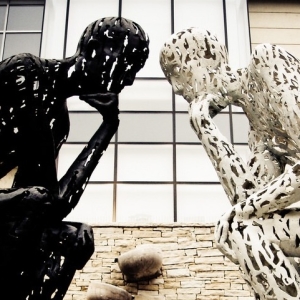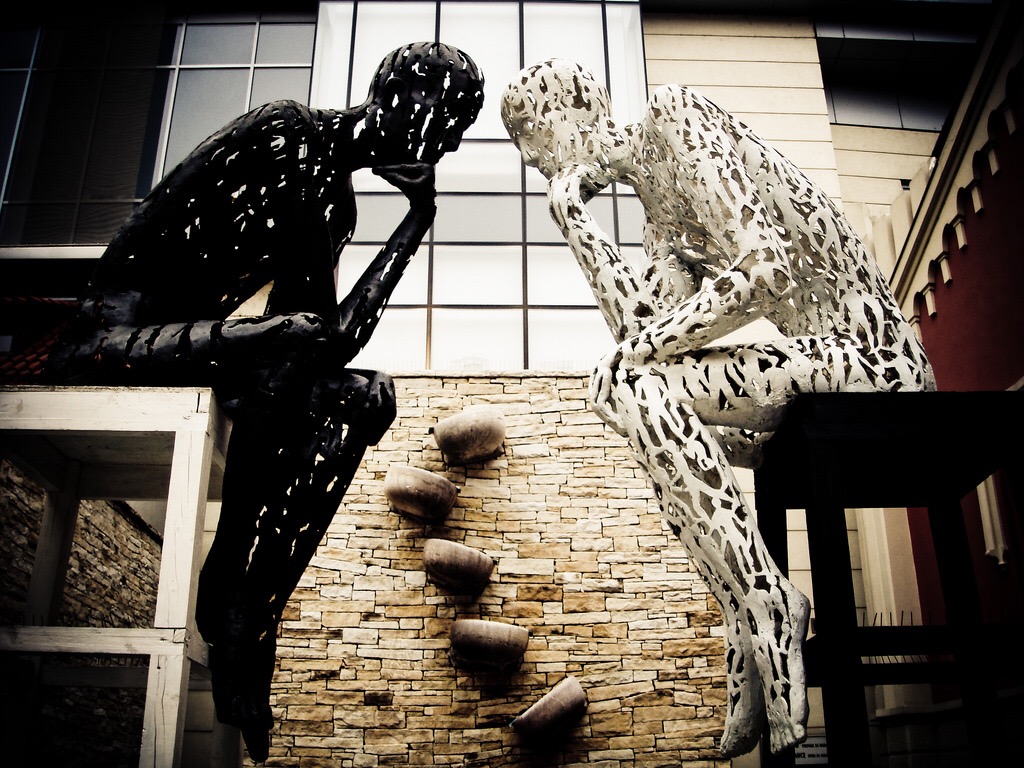
.png) S. Jayaseelan SDB
S. Jayaseelan SDB

Recently, I watched a TED Talk by Kathryn Schulz, an author and public speaker claiming to be the world's leading "wrongologist." Her talk was about the value of being wrong; her insights are profound and necessary. More importantly, she discusses the open-mindedness that comes with entertaining the possibility that we might be wrong. Our ability to accept our fallibility is fundamental to who we are; it helps us become better people, better listeners, and better communicators. Isn't that a great insight? It is worth penning down some of the salient points of Schulz's talk, which questions the illusion of being right always.
The Illusion of Rightness
Schulz begins by addressing the illusion of rightness that often overpowers our being. There are two primary reasons for this illusion. Firstly, Structural Reason. We frequently find ourselves trapped in a bubble of feeling right about everything, a phenomenon Schulz calls "error blindness." We believe our views perfectly reflect reality, causing us to make unfortunate assumptions when faced with disagreement: the ignorance assumption (others don't know what we know), the idiocy assumption (others are incapable of understanding), and the evil assumption (others are choosing to be wrong).
This internal sense of rightness is not a reliable indicator of reality. Acting on this false certainty can lead to significant practical and social problems. The attachment to our rightness prevents us from learning from our mistakes and leads us to treat each other terribly.
Secondly, Cultural Conditioning. From a young age, our schooling labels us with names like "dumb kid," "troublemaker," or "good for nothing" if we make mistakes. We learn the damaging lesson that those who err are lazy and irresponsible and that success comes from never being wrong. These bad lessons follow us into adulthood, making it difficult for many to accept when they are wrong. The miracle of our minds lies not in our ability to perceive the world as it is but in our capacity to envision it as it isn't, thus leading to embracing the feeling of "I may be wrong."
Embracing Fallibility
Realising that you are wrong can evoke a wide range of emotions. It might be amusing, as in the moment you laugh at a silly mistake, or it can be devastating when you confront a significant error with severe consequences. Sometimes, the realisation is revelatory, opening your eyes to new perspectives and deeper understanding. Regardless of the initial emotional reaction, the more crucial aspect is the open-mindedness that comes with entertaining the possibility that you might be wrong. This willingness to accept our fallibility is fundamental to who we are and plays a vital role in our personal development.
Further, accepting that we can be wrong helps us become better individuals. It encourages humility and fosters a willingness to listen more carefully to others, improving our communication skills. By acknowledging our mistakes, we learn from them and create an environment where others feel safe to admit their errors, promoting a culture of mutual respect and continuous improvement.
Unfortunately, this is not easy for everyone. Some people find it exceptionally hard to admit that they might be wrong, which can be a painful experience for them and those around them. However, there is nothing inherently wrong with being wrong. Acknowledging and embracing our mistakes is how we grow. While overdoing self-criticism can be detrimental, a balanced acceptance of our imperfections is vital for personal and collective progress.
Choosing to be a "wrongologist" - someone who acknowledges and learns from their mistakes - might be a wiser and more fulfilling path than striving to always be a "rightist" - someone fixated on being correct. Saying, "Maybe I'm wrong" invites dialogue, exploration, and growth, while "I'm right!" often shuts down further discussion and learning. This shift in mindset opens us up to a broader range of possibilities and opportunities.
In Zen and the Art of Motorcycle Maintenance, Robert M. Pirsig reflects on the pursuit of truth, noting the irony: "The truth knocks on the door and you say, 'Go away, I'm looking for the truth,' and so it goes away. Puzzling." This highlights the paradox that our rigid pursuit of certainty often blinds us to the truths that are right in front of us. Wilhelm Reich echoed a similar sentiment, observing, "The less one understands something, the more firmly one believes in it."
Socrates, with his famous declaration, "The only true wisdom lies in that we, in fact, know nothing," underscores the value of epistemic humility - recognising that our knowledge is always incomplete and acknowledging our ignorance is the first step towards true wisdom. These insights collectively emphasise that embracing our fallibility and being open to the possibility of being wrong is not a weakness but a profound strength that leads to continuous learning and growth. Are you ready to embrace being wrong? Those who do find themselves on a path filled with more possibilities and deeper understanding, urging one to escape the trap.
Stepping Out of the Rightness Trap
Let us step out of the terrifying space of rightness, where the fear of being wrong traps us in a cycle of certainty and inflexibility. René Descartes famously declared cogito ergo sum ("I think, therefore I am"), emphasising the primacy of rightful thinking and rationality. This philosophy has greatly influenced our culture, encouraging us to seek certainty and correctness in our thoughts and actions. However, St. Augustine offers a profound counterpoint with fallor ergo sum ("I err, therefore I am"), suggesting that our capacity to make mistakes is not an embarrassing defect to be eradicated but a fundamental aspect of our humanity.
Our mistakes are opportunities for learning and innovation, opening up space for new ideas, perspectives, and solutions to emerge. Instead of fearing being wrong, we should embrace our fallibility, transforming our relationship with mistakes from failures to integral steps in our journey towards understanding and improvement. This mindset shift encourages a more open, curious, and resilient approach to life. The feeling of being right is not always reliable; often, we aren't right. Things often don't go as planned in life, but by adapting, learning, and growing, we become better equipped to handle whatever comes our way.
We should each embrace our mistakes and welcome the possibility that we might be wrong. By doing so, we open ourselves up to growth, understanding, and a more compassionate way of living. As Schulz and many thinkers have affirmed, acknowledging our fallibility is not a weakness but a strength that leads to wisdom and creativity. Let us, then, step out of the comfort of rightness and explore the vast opportunities that come with being wrong.